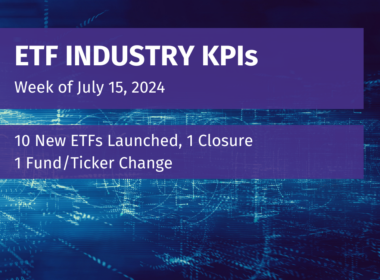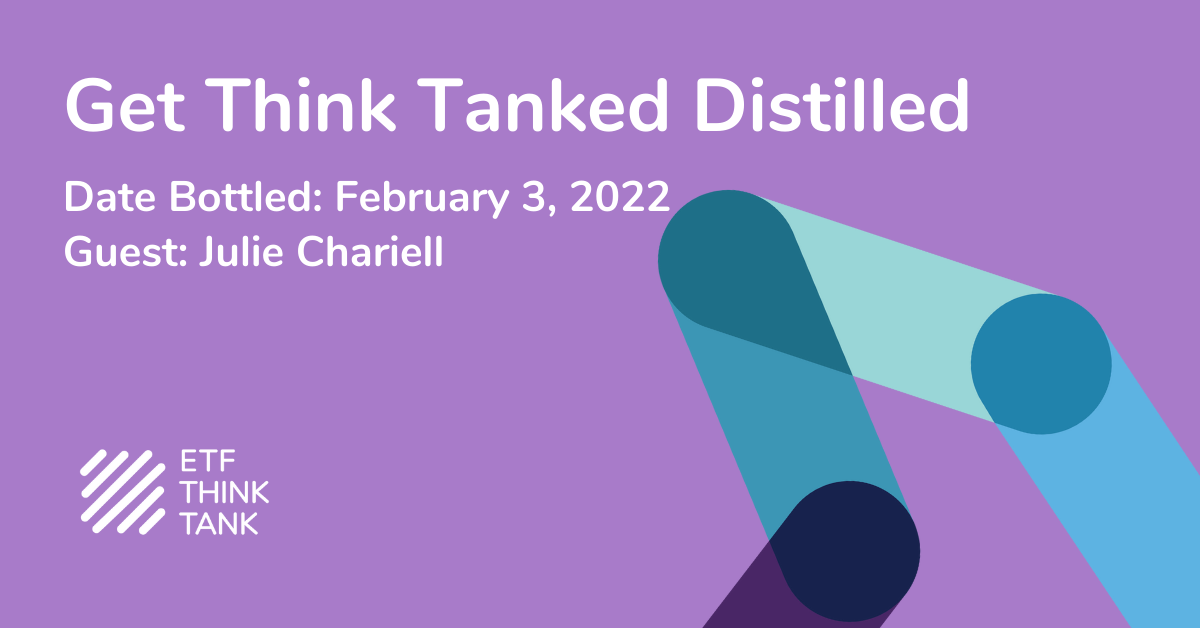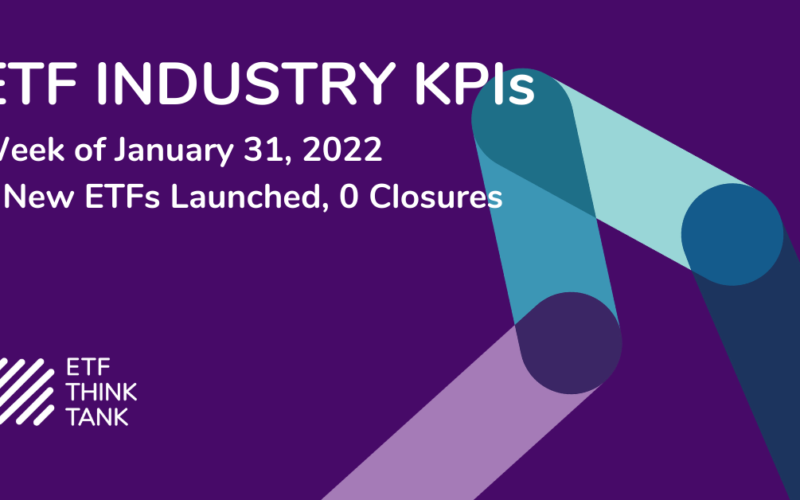The tech sector continues to control the market narrative, both on the way up and on the way down. It’s in an especially interesting spot today given some of the volatility we have seen heading into a Fed tightening cycle. Julie Chariell, the senior fintech analyst at Bloomberg Intelligence, stopped by the ETF Think Tank to offer her thoughts on some of the sector’s biggest players and some of the trends she sees playing out in the near future.
The theme of digital payments and consumer financial solutions came up frequently in the conversation. The “buy now, pay later” option on many platforms may be a developing trend, but Chariell says it’s here to stay. She notes that installment payments are already commonplace in Latin American countries, even though it’s a newer thing in the United States. Over the next 12-24 months, most merchants are going to need it to offer it as a payment option. The banks and credit cards will soon offer it regularly and it will just become another payment option along with cash, check and card. Many financial institutions will use it as a bridge between debit and credit.
In terms of innovation, the growth of the “super app”, which adds more functionality, product, and service offerings to an existing app, will continue to emerge. Companies won’t use it necessarily to attract new customers, but to increase engagement and stickiness, which would, in turn, drive greater monetization. As an example, companies will begin rolling investing options into their existing financial apps. PayPal is offering payroll direct deposit into their accounts, so it can potentially be disruptive to those looking to avoid banking altogether. The migration of more products & services into fewer destinations is both interesting and a little scary.
Another big opportunity in fintech, Chariell says, is simply getting businesses set up on an electronics payment platform. Many contractors, for example, still like to work with cash and roughly half of payments are still done via check, so the opportunity to move businesses away from paper and towards digital automation adds efficiency. The remote work trend could force some of this change along since offices and their staffs are becoming more disconnected physically. This is an especially big opportunity for the likes of Visa and Mastercard.
How do companies, such as Robinhood and Coinbase fit into this? Both started out targeting mostly retail traders by offering stocks, options and crypto all in one place. Both are competing more towards acquiring more affluent and experienced traders, but Coinbase has been having more success on this front. Around ⅔ of Coinbase’s trading volume is now institutional, not retail. There’s the expectation that banks will eventually arrive, but will they be too antiquated and are they going to go after market share?
Other key takeaways:
- Mastercard is a little ahead of Visa in terms of its technology mindset but expect both to begin making strides in blockchain and crypto. They’re just beginning to allow individuals to use their cards to buy crypto and it’ll next be about accepting crypto payments. Visa has already partnered with Coinbase.
- Micro-lenders, which may offer something like a mini-10-day loan as a way to build up credit, is pushing companies past the boundaries of simple, targeted businesses. Products are getting more creative, and banks are slowly beginning to catch up. Many are considering giving up fees to become bigger players. The big banks could replicate these products relatively quickly, but do they want to since they tend to cater to higher net worth individuals.
- Some companies, such as PayPal, have struggled because they overestimated user growth and the degree to which consumers would make the switch to digital and online sales permanent. They thought pandemic-era growth in online shopping would continue post-pandemic, but many are showing that they want to go back to stores.
- The acceptance and use of products like ApplePay and GooglePay haven’t caught on as much as expected. It was initially gaining traction on the peer-to-peer side, but that has since slowed. Even the companies themselves are beginning to focus less on these. GooglePay was ahead of ApplePay in terms of services offered, but they’ve abandoned some recent growth efforts. Apple could try to grow the Apple Card instead.
Disclosure
All investments involve risk, including possible loss of principal.
The information provided here is for financial professionals only and should not be considered an individualized recommendation or personalized investment advice. The investment strategies mentioned here may not be suitable for everyone. Each investor needs to review an investment strategy for his or her own particular situation before making any investment decision.
All expressions of opinion are subject to change without notice in reaction to shifting market conditions. Data contained herein from third party providers is obtained from what are considered reliable sources. However, its accuracy, completeness or reliability cannot be guaranteed.
Examples provided are for illustrative purposes only and not intended to be reflective of results you can expect to achieve.
The value of investments and the income from them can go down as well as up and investors may not get back the amounts originally invested, and can be affected by changes in interest rates, in exchange rates, general market conditions, political, social and economic developments and other variable factors. Investment involves risks including but not limited to, possible delays in payments and loss of income or capital. Neither Toroso nor any of its affiliates guarantees any rate of return or the return of capital invested. This commentary material is available for informational purposes only and nothing herein constitutes an offer to sell or a solicitation of an offer to buy any security and nothing herein should be construed as such. All investment strategies and investments involve risk of loss, including the possible loss of all amounts invested, and nothing herein should be construed as a guarantee of any specific outcome or profit. While we have gathered the information presented herein from sources that we believe to be reliable, we cannot guarantee the accuracy or completeness of the information presented and the information presented should not be relied upon as such. Any opinions expressed herein are our opinions and are current only as of the date of distribution, and are subject to change without notice. We disclaim any obligation to provide revised opinions in the event of changed circumstances.
The information in this material is confidential and proprietary and may not be used other than by the intended user. Neither Toroso or its affiliates or any of their officers or employees of Toroso accepts any liability whatsoever for any loss arising from any use of this material or its contents. This material may not be reproduced, distributed or published without prior written permission from Toroso. Distribution of this material may be restricted in certain jurisdictions. Any persons coming into possession of this material should seek advice for details of and observe such restrictions (if any).












